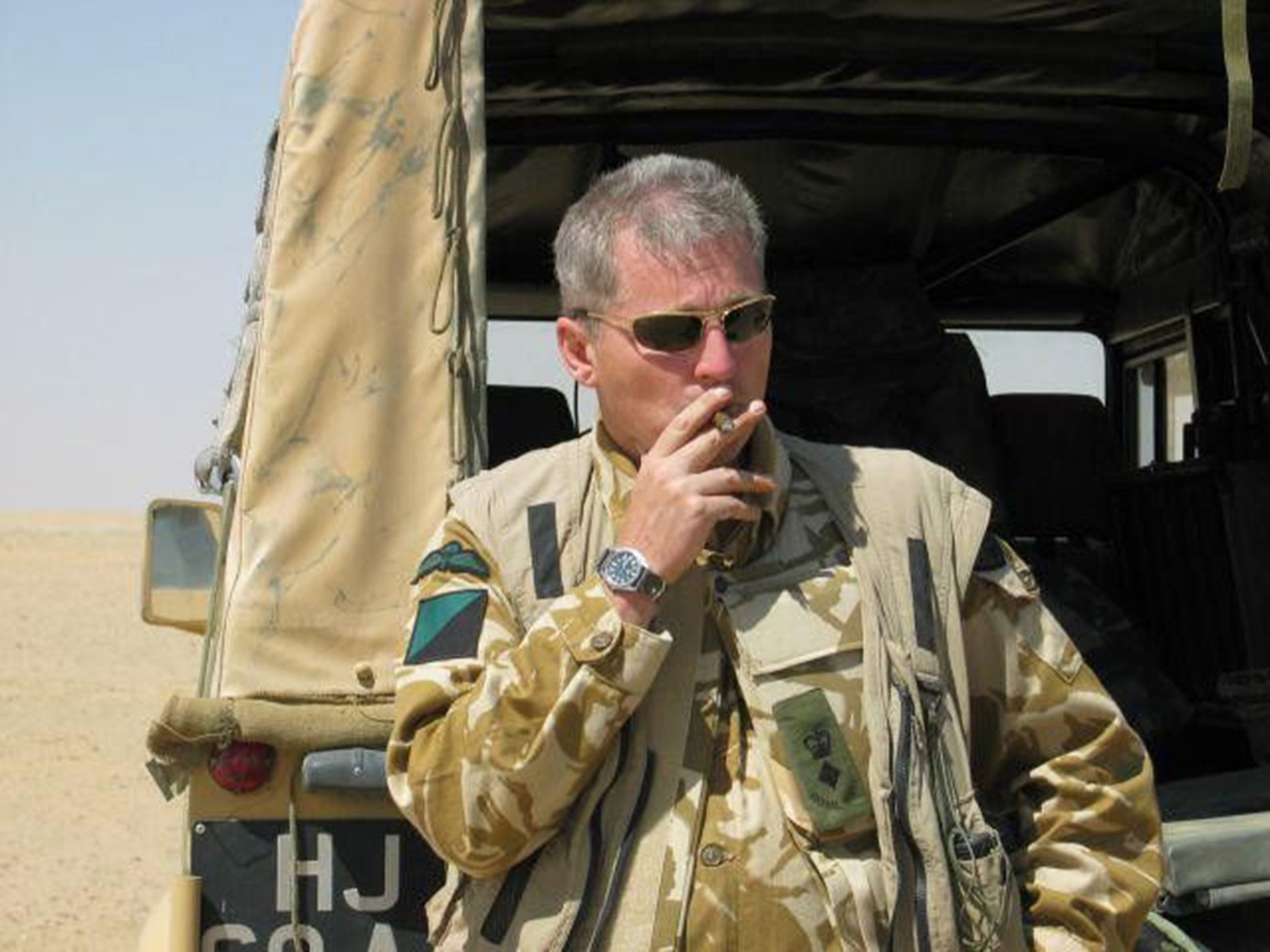Colonel Tim Collins OBE: The inspirational soldier whose pre-Iraq speech is said to hang in the Oval Office
Jonathan Owen reports on Tim Collins’ career in and out of uniform

Your support helps us to tell the story
From reproductive rights to climate change to Big Tech, The Independent is on the ground when the story is developing. Whether it's investigating the financials of Elon Musk's pro-Trump PAC or producing our latest documentary, 'The A Word', which shines a light on the American women fighting for reproductive rights, we know how important it is to parse out the facts from the messaging.
At such a critical moment in US history, we need reporters on the ground. Your donation allows us to keep sending journalists to speak to both sides of the story.
The Independent is trusted by Americans across the entire political spectrum. And unlike many other quality news outlets, we choose not to lock Americans out of our reporting and analysis with paywalls. We believe quality journalism should be available to everyone, paid for by those who can afford it.
Your support makes all the difference.Colonel Tim Collins OBE is a charismatic figure best known for an inspirational speech given to the troops under his command shortly before the invasion of Iraq in 2003.
Speaking to 1st Battalion The Royal Irish Regiment, he said: “We go to liberate, not to conquer,” and told his troops: “If you are ferocious in battle remember to be magnanimous in victory.” Col Collins, dubbed “Nails” by his men, went on to say: “The enemy should be in no doubt that we are his nemesis and that we are bringing about his rightful destruction.”
A copy of the speech is said to have hung in the White House’s Oval Office, according to New Century’s profile of Col Collins, its chief executive. The 54-year-old was born in Northern Ireland and he wanted to be a soldier from a young age.
After graduating with a degree in social sciences from Queen’s University, Belfast, he went to the Royal Military Academy in Sandhurst before being commissioned into the Royal Signals, and transferred to the Royal Irish Rangers in 1982. His Army career saw him serve in Northern Ireland, the Falkland Islands, Germany, Cyprus, and Gibraltar. He served in 22 SAS from 1999 to 2000, and in 2001 he was appointed commanding officer of 1st Battalion Royal Irish – who he would lead into battle in Iraq two years later. He was subsequently awarded the OBE.
Col Collins, who is married with four children, retired from the Army in 2004. Two years later he co-founded New Century, a defence contractor which has its headquarters in Guernsey, offices in London and Belfast, and subsidiaries in the US and Australia. It describes itself as “building intelligence capacity” and providing “specialist training in security sector reform.” Its website boasts: “We have successfully provided continuous and effective programmes for our largest client, the United States government, for more than seven years.”
Much of the work New Century does for the US government is modelled on undercover police tactics used in Northern Ireland. New Century’s staff includes former members of the Special Branch of the Royal Ulster Constabulary (RUC), as well as ex-British military officers. The company’s director of doctrine, standards, audit and training is Dr Norman Baxter, a former detective chief superintendent in the RUC.
Previous advisers have included the likes of General Peter J Schoomaker, who was chief of staff of the US Army until 2007, former Republican representative Jim Saxton, a former member of the Armed Forces Committee; and Nancy Soderberg, a former adviser on Northern Ireland to Bill Clinton. Scott Jacobs, a former principal adviser to the Under Secretary of Defence for Intelligence, who is the president of the company’s US subsidiary, has described the work it does in training the Afghan army and police as New Century’s “flagship programme”.
Speaking before a US Senate hearing in 2013, he said the company employed “a specific doctrine and teaching methodology that is based on the experience of the British constabulary force, or Special Branch, in Northern Ireland during the conflict of the Seventies and Eighties.”
As well as his defence consultancy work, Col Collins regularly appears as a pundit on military matters in the media, regularly speaking up in defence of frontline soldiers.
Join our commenting forum
Join thought-provoking conversations, follow other Independent readers and see their replies
Comments